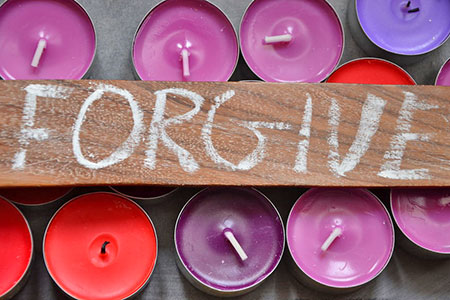self-compassion
The Importance Of Self-Trust
 Of all the relationships in our life, none is more complicated or important than the one we have with self. And the cornerstone of this relationship is self-trust. Unfortunately, it is easy to damage the trust we place in ourselves. Why? Because all of us have or will make choices and decisions that don’t produce the desired outcome.
Of all the relationships in our life, none is more complicated or important than the one we have with self. And the cornerstone of this relationship is self-trust. Unfortunately, it is easy to damage the trust we place in ourselves. Why? Because all of us have or will make choices and decisions that don’t produce the desired outcome.
A relationship fails and we blame or question ourselves; a job opportunity eludes us; or a friendship fractures beyond repair. We lose self-trust when we don’t achieve a goal, whatever that goal may be. Then we may begin to question our own abilities, our dreams, and our worthiness to have them manifest in our life.
Every time we replay an event we label a failure the doubt in our own judgment and our self-worth increases. Self-confidence stems from self-trust, so the cycle can be a vicious one.
So, how can we repair self-trust? First, decide to give yourself a break. You made what you believed to be the best decision or choice in the moment. If you are saying, “No, I didn’t, I know I should have done…,” then stop and choose to forgive yourself for not trusting your instincts in that moment. Holding a grudge against yourself only assures that the pattern will repeat.
Next, decide to honor your emotions. If you have made choices and decisions that you perceive as a failure, then the tendency is to begin to substitute the opinions of others over our own intuition, desires and dreams. This pattern can lead to co-dependency, confusion and fear. Self-trust is harnessed when we follow our sacred wisdom, instead of looking outside ourselves to provide inner peace.
Dealing With A Narcissistic Partner
 We all know at least one narcissist. It’s that toxic person in your life who seems charming and likable at first, but is actually extremely self-centered, has an inflated ego, shows no empathy or remorse, and can even become abusive. But what if that person is your partner, or someone you love?
We all know at least one narcissist. It’s that toxic person in your life who seems charming and likable at first, but is actually extremely self-centered, has an inflated ego, shows no empathy or remorse, and can even become abusive. But what if that person is your partner, or someone you love?
Narcissists want to control. They want others to see them as important, superior and in charge. To a narcissist, someone who suffers from compromised self-esteem, is easy prey, which is why many people who have a narcissistic partner find it difficult to break it off.
Abuse is not always physical. It also takes the form of verbal insults, emotional manipulation or gaslighting, withholding affection, and unequal sharing of duties. All of these forms of abuse feed into a narcissist’s egotism. Narcissists typically try to rope their partners into joining into these negative, harmful relationship patterns.
So, what do you do when you find yourself attached to an abusive narcissist? At first, it’s easy to try and explain away their abusive behavior by citing times when they shows affection, brought gifts, or offered kindness and emotional support. They are good at pretending, but don’t be fooled.
Setting up healthy and definitive boundaries is the first and best defense. Know that you have the right to say no at any time! Falling for gaslighting, emotional manipulation and blackmail is an easy trap, and most narcissists are masters at these psychological games. If you’re unsure of yourself, role-play with a trusted friend or counselor, or read up on the subject. Like most difficult things in life, it takes practice.
The Importance Of Self-Trust
 Of all the relationships in our life, none is more complicated or important than the one we have with ourselves. The cornerstone of this relationship is self-trust.
Of all the relationships in our life, none is more complicated or important than the one we have with ourselves. The cornerstone of this relationship is self-trust.
Unfortunately it is quite easy to damage the trust we place in ourselves. Why? Because during our lives all of us have, or will, make choices and decisions that don’t produce the desired outcome.
We all fail, and we all make mistakes. A relationship fails and we blame or question ourselves. A job opportunity eludes us, or a friendship fractures beyond repair.
We lose self-trust when we don’t achieve a goal, whatever that goal may be. Then we begin to question our abilities, our dreams and our worthiness to have them manifest in our life.
Every time we replay an event that we label a failure, the doubt in our judgment and our self-worth increases. Self-confidence stems from self-trust, so the cycle can become vicious and destructive.
So, how can we repair self-trust? First, decide to give yourself a break. You made what you believed to be the best decision or choice in the moment. If you are saying, “No, I didn’t! I knew I should have done it differently,” then stop the that negative thought pattern, and choose instead to forgive yourself for not trusting your instincts in that moment. Holding a grudge against yourself only assures that the pattern will repeat.
Next, decide to honor your emotions. If you have made choices and decisions that you perceive as a failure, then the tendency is to begin to substitute the opinions of others over our own intuition, desires and dreams. This pattern can lead to co-dependency, confusion and fear. Self-trust is harnessed when we follow our sacred wisdom, instead of looking outside ourselves to provide inner peace.
The Legacy Of The Modern Crone
 The time of the crone is the third stage in the life of a woman, may she feels she has come full circle. The Crone is traditionally an archetypal figure for a ‘wise old woman.’ In ancient times the ‘crone’ was considered, in a matriarchal community, to typically be a mature woman past the age of menopause.
The time of the crone is the third stage in the life of a woman, may she feels she has come full circle. The Crone is traditionally an archetypal figure for a ‘wise old woman.’ In ancient times the ‘crone’ was considered, in a matriarchal community, to typically be a mature woman past the age of menopause.
In society today, many women look at the time in life past menopause as a blessing. It is now considered a time to get on with life and achieve the things that may have been put on the backburner. It is a time when one hits that age where experience counts as true knowledge.
In my own opinion most of the women I know personally, who lived as young adults through the 1960’s and 1970’s, are not very much concerned with their physical age, as long as they have their health and feel good about themselves. They are not concerned about what society may call the age one is deemed ‘a crone.’
The term ‘crone’ is believed to originate from Rhea Kronia. Rhea is the ancient Greek goddess of female fertility, motherhood, and generation, also known as ‘Mother Time.’, She is also associated with black creatures, such as the crow, which is sacred and related to death.
There was a time when the crone was recognized as a treasured valued member of the community. Her advice was sought by those younger and less experienced. The good old golden rule was her belief of ‘the way life should be lived.’
Free Yourself With The Power Of Forgiveness
 How can we possibly reconcile the feelings of anger and betrayal with a need to forgive? Are we compromising our integrity in doing so?
How can we possibly reconcile the feelings of anger and betrayal with a need to forgive? Are we compromising our integrity in doing so?
Forgiveness can seem like an impossibility… but it doesn’t have to be. It’s really one of the few things in life that really matters, whether it means forgiving ourselves, or someone else. It is said that allowing someone to continuously upset you, is to allow them to ‘live rent-free inside your mind.’
Others hurt us all the time. Holding on to this hurt for long periods of time can damage us physically and psychologically. And then there are those ‘little things’… like someone cutting you off in traffic, or forgetting an important date.
One thing forgiveness does not do, is make us forget the source of the pain. What it does is allow a reconciliation with what happened, and allows us to move on in a productive way. When you were a child, perhaps you got hurt with a hot stove burner or electrical outlet. You didn’t (hopefully) spend the rest of your life being angry at stoves or electrical outlets! This is basically how forgiveness also works. We can acknowledge that someone or something caused us to hurt, and be aware of how that happened, but still move past it and get on with our lives.
Holding on to anger and bitterness will color all your relationships, until you learn to forgive and let go. If, for example, you ended a toxic relationship and decided to start dating again, you might not be able to fully trust, because of the possibility of reliving that pain. A truly intimate relationship will never happen without forgiveness.
Love, Joy And Happiness After Years Of Hardship
 I have a client who used to be extremely depressed. I recommend she speak to a therapist or counselor instead, because I felt that is exactly what she needed at the time. She had been harboring a lot of bitterness, grief, sadness, anger and other toxic negative emotions for a very long time. She needed professional help that I felt was beyond my scope of expertise.
I have a client who used to be extremely depressed. I recommend she speak to a therapist or counselor instead, because I felt that is exactly what she needed at the time. She had been harboring a lot of bitterness, grief, sadness, anger and other toxic negative emotions for a very long time. She needed professional help that I felt was beyond my scope of expertise.
So, she found a therapist and went for counseling, but months later she told me that the only thing she felt she accomplished was her spending thousands of dollars on help she never really received. She had still found no relief from her deep distress.
She had been bitter for a long time. While raising her children and attending church, her husband would cheat on her. She also worked the entire time the children were young, until they graduated. Meanwhile, he would leave on ‘business trips’ to go and gamble away their hard-earned livelihood, and spend time with other women. Then one day, he met someone he wanted to marry. So, they divorced and he moved far away to be with his new wife. He was a narcissist.
Her sadness and grief was also due to the loss of her mother, whom she had taken care of for 20 years after her father passed. She sacrificed a lot to dedicate herself to serving her mother’s needs. During this time she had no notion of self-care. She suffered on all levels: emotionally, physically, spiritually. She even gave up going to church. She was slowly dying inside and didn’t even know who she was anymore.
